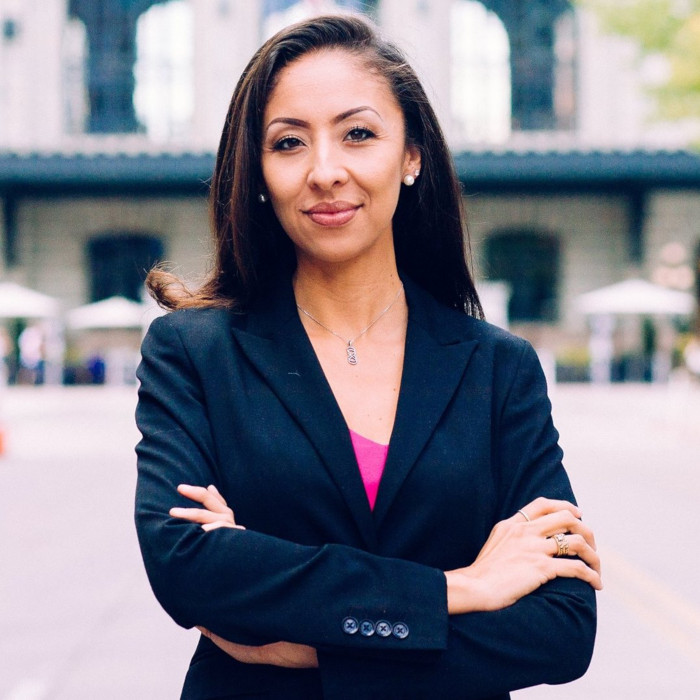On August 5, Denver City Council voted against renewing $10.6 million in contracts with two private prison companies. The companies, GEO Group and CoreCivic, operate community corrections or “halfway houses” in Denver. Together they currently house about 500 formerly incarcerated people who are transitioning back into society. They had also expected to house another 200 people soon to be released from Denver prisons. A different plan will now be needed.
First-term Councilwoman Candi CdeBaca of Denver’s District 9 forced a hearing on the issue after she inadvertently learned of the city’s private prison contracts. “I was in a Committee I don’t even vote in when I heard of these contracts from our Director of Community Corrections,” she told Filter. She explained how the contracts are bundled together in a package of money the city receives from the state. The City Council has to authorize each contract in a separate bill.
CdeBaca wanted to investigate the contracts further, and moved to request a public hearing at the City Council. She also called on local civil rights and prison abolition organizations to testify. “In recent years the city has not denied a single contract that came before it,” she said. “So it was pretty unprecedented to hold a public discussion like this.”
“Though the city says we stand with immigrants, we invest in organizations responsible for private prison monopolies, harming immigrants and committing human rights violations.”
Eight of the 13 City Council members ultimately voted to deny GEO Group and CoreCivic new contracts. CdeBaca said she expected to be the only vote against renewing, but by the end of the day seven other Councilmembers had joined her. Four Councilmembers voted to renew, while one was absent.
“Even if we failed, my goal was to raise awareness that though the city says we stand with immigrants, we invest in organizations that are responsible for private prison monopolies, are harming immigrants and are committing human rights violations here in our backyard,” CdeBaca said.
GEO Group also operates an Immigrations and Customs Enforcement (ICE) detention facility in Aurora, Colorado. Two thousand protesters rallied outside the Aurora facility on July 12 amid reports of government standards violations, poor medical care and immigrant arrests in the region.
No Councilmembers spoke in the companies’ defense during the four-hour meeting. But they debated what would happen to the 500 halfway house residents if the contracts were not renewed. Some Councilmembers feared that without an alternative, and unless a judge agreed to parole them, these people would be returned to jail or prison. For the moment, the halfway houses are remaining open without a contract. CoreCivic has indicated it will work towards a solution that does not involve returning the residents to jail.
“As a City Council in a heavily mayoral control system, we don’t have the power to amend or re-negotiate contracts,” CdeBaca said. “We can only vote yes or no. We had to vote no without a plan, but it was disappointing that our city corrections officials did not present us with an alternative plan, even with advance notice.”
Supporters of the no vote argued that responsibility for halfway house facilities should be given to the city and local organizations. “We’re asking for shorter-term contracts to transition these 500 people out while not jeopardizing their placement in community corrections,” CdeBaca said. “And we want to create a working group to develop longer-term housing solutions involving community members and experts who have been squeezed out of this process.”
The private prison vote is CdeBaca’s first major action as a Councilmember, and she hopes to keep investigating the city’s contracts with other companies. “How we spend our money is a reflection of our values,” she said. “It is incredibly problematic to not have more diligence in deciding how we spend our money. We are a City and County with unique powers to legislate, and we set the tone for the entire area.”
Image of Councilwoman Candi CdeBaca via Facebook.





Show Comments